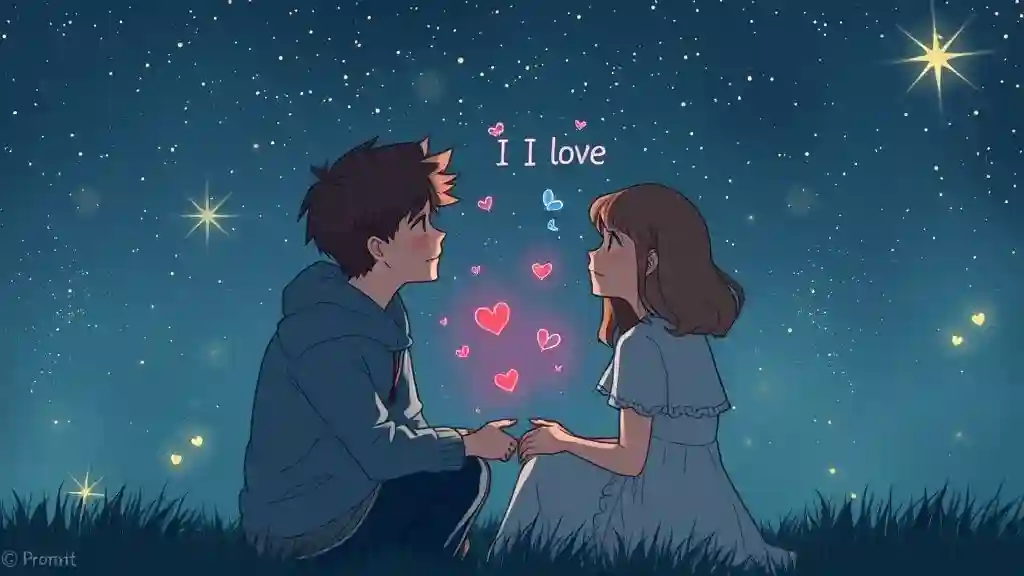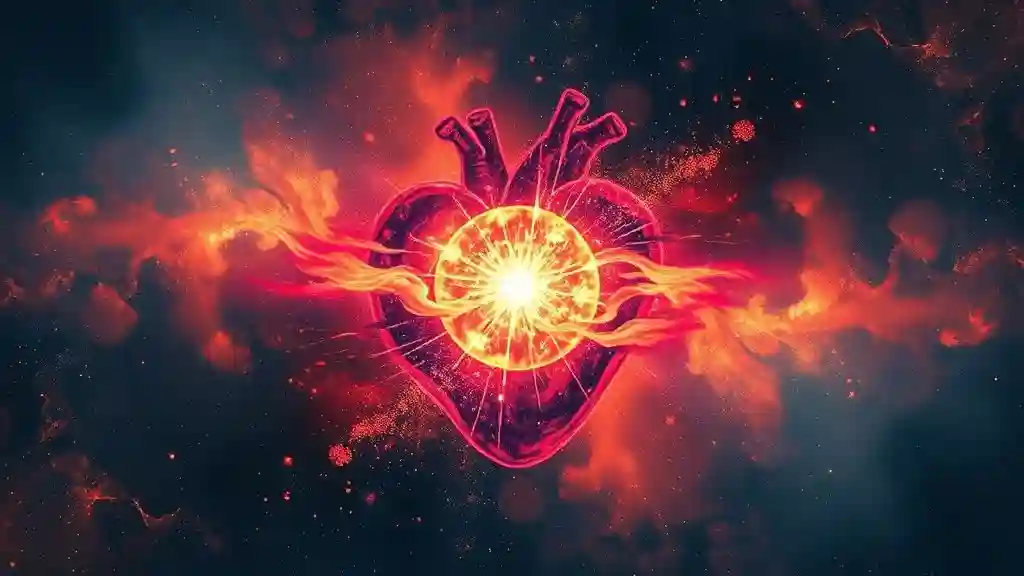
The first time those three words slip past your lips — I love you — it feels like a supernova exploding inside your chest. Your heart isn’t just beating; it’s pounding like a searing brand against your ribs, threatening to give away everything you’ve tried to hide with nervous smiles and half-measured touches. The moment is electric. It’s goosebumps racing across your arms, butterflies charging through your stomach, and starlight flickering in the dark corners of your mind.
Who Breaks the Silence First?
But here’s the question: who usually says “I love you” first? Is it the one who can’t stand the silence any longer, or the one who believes in waiting until the echo of love is undeniable?
I remember the first time I said it. My voice cracked. My palms were sweaty. The words felt enormous, like they could topple the balance of what we had. But I couldn’t keep them in. The butterflies had turned into something heavier, almost unbearable. That night, I realized love doesn’t wait for permission — it breaks through you like a storm you can’t contain.
The Fireworks of Saying “I Love You”

If you’ve ever been there, you know: the moment you whisper or blurt I love you is nothing short of volcanic. It’s not casual, like asking someone to pass the salt. It’s the ultimate risk, the leap without a parachute. And yet, research (and plenty of late-night confessions over coffee) suggests something surprising — men tend to say it first more often than women.
Why Men Might Leap First
Why? Maybe because they’re wired to leap before calculating the fall. Or maybe because I love you is their way of branding a moment into permanence, a searing brand they don’t want time to erase.
Why Women Often Wait
Women, on the other hand, sometimes hold back. Not because they don’t feel it, but because they’ve been taught the weight of those words can’t be tossed around lightly
But let’s be honest: the first confession isn’t really about gender. It’s about courage. It’s about whether your heart can survive the silence if the other person doesn’t say it back.
Butterflies, Fear, and the First Move
The night I said it, I thought I might choke on my own fear. My tongue felt like sandpaper. The world slowed down to starlight dripping across the ceiling. In that fragile moment, I wondered: What if this is the wrong time? What if the echo I get isn’t love, but emptiness?
Yet even with that terror, the butterflies carried me forward. Because holding it in felt worse. That’s the paradox of love: it’s both searing and tender, terrifying and liberating.
When Silence Breaks — and Love Answers
And when I finally said I love you, the silence afterward nearly broke me. Seconds stretched into lifetimes. My brain screamed, You’ve ruined it.
Then came the smile. The tears. The soft, steady echo of those same words coming back to me. And just like that, the world cracked open into something bigger, brighter — a supernova that didn’t destroy, but created.
Why Saying “I Love You” First Feels Like Walking a Tightrope
To say I love you first is to expose yourself, fully and raw. It’s like holding out your heart and praying it won’t be dropped. That’s why the person who says it first often feels like the risk-taker, the one who can’t keep the truth buried any longer.
When Your Body Demands Honesty
It doesn’t matter if you’re the cautious type or the hopeless romantic. At some point, the tension becomes unbearable. The butterflies don’t fade; they multiply until they demand release. The goosebumps on your arms aren’t just nerves; they’re a body screaming for honesty.
The truth is, I love you is less about who says it first and more about what it does when it lands. Does it ignite a fire? Does it echo back with equal force? Or does it fall into silence, leaving one person exposed under the starlight while the other stumbles for words?
The Myth of Timing
We tell ourselves timing is everything — that I love you should be held like a secret until the exact right moment. But here’s the thing: love doesn’t care about calendars. It doesn’t check your three-month mark or your six-month milestone. It erupts when it wants, like a supernova across the night sky.
Love Doesn’t Wait for Permission
Sometimes that’s early. Sometimes it takes years. Sometimes the one who feels it first keeps quiet, waiting for the courage to catch up. And sometimes, one person blurts it out after a glass of wine, shaking and praying the echo doesn’t crush them.
But in the end, there’s no perfect timing. There’s only the truth. And when the truth is bursting at your seams, silence feels heavier than the risk.
Story Within the Story

I once asked a friend who said it first in her relationship. She laughed, cheeks turning red, and admitted it was her — blurting I love you after a clumsy kiss in the rain. She hadn’t planned it. She hadn’t rehearsed it. The words just escaped, like starlight leaking through clouds.
The Echo That Outlasts Perfection
Her partner froze, then whispered it back, shaky but certain. Years later, she said that moment still gives her goosebumps.
And maybe that’s the heart of it: I love you is rarely cinematic. It’s awkward. It’s messy. It’s terrifying. But when it’s true, it becomes an echo that shapes the rest of your story.
Who Usually Says “I Love You” First?
So, back to the question: who says it first? Men, statistically, maybe. Women, sometimes. But really — it’s the one whose chest can’t contain the supernova any longer. The one who realizes butterflies are just reminders that love isn’t meant to be caged.
The Risk That Rewrites Your World

To say I love you first is to risk everything and gain the world. It’s the goosebumps on your arms, the searing brand in your chest, the echo of starlight in another person’s eyes.
And the truth is, no matter who says it first, the moment will always feel like the universe holding its breath.
The Echo That Changes Everything
The first “I love you” never fades. Even years later, you’ll remember where you were, what the air smelled like, how your chest felt like it had swallowed a supernova. You’ll remember the pause before the answer, the searing brand of silence that burned until the echo finally came back.
Because here’s the truth: those words aren’t just a confession. They’re a gamble with fate. They’re the currency we trade for intimacy, vulnerability, and belonging. The first “I love you” isn’t just said — it imprints itself on your memory forever.
When “I Love You” Doesn’t Come Back

Of course, not every story has a goosebumps ending. Sometimes, one person leaps, and the other doesn’t follow. You say I love you under the glow of starlight, but instead of an echo, you get hesitation. A nervous laugh. Maybe even silence.
The Bravery in the Break
W312It hurts. It’s a searing brand across your soul, a reminder that love is always a risk. But here’s the thing — that moment isn’t failure. It’s bravery. You were honest. You didn’t let the butterflies choke you into silence. You trusted your truth enough to speak it aloud.
And sometimes, that honesty plants a seed. Maybe your partner wasn’t ready to say it back yet, but hearing it stirs something. A month later, maybe the echo comes. Not forced, not rushed — but real.
Gender Myths and Reality
There’s a common belief that men say I love you first because they’re impulsive, while women hold back because they’re cautious. But love doesn’t always fit neatly into gender boxes.
Love Doesn’t Read the Rulebook
I know couples where she said it first, unafraid, letting the words burst out like starlight. I know others where he whispered it months before she was ready to echo it. And I know a friend who swore neither of them ever said it first — they just sort of grew into it, like a sunrise they both woke up under.
So maybe the better question isn’t who usually says it first? but why does it matter who says it first? Because in the end, the timing, the courage, the butterflies — all of it — belongs to the story you’re writing together.
The Science Behind the Supernova
Psychologists say that saying I love you releases oxytocin — the bonding hormone — and triggers dopamine spikes in the brain. In other words, it literally rewires your chemistry. That explains the goosebumps, the butterflies, the unstoppable smile after the words leave your lips.
What Science Can’t Contain
But science can’t explain the poetry of it. Science can’t measure the starlight in someone’s eyes when they echo the words back. It can’t chart the way your body remembers the moment years later, like a song you can’t forget.
Love isn’t just chemical. It’s cosmic. And that’s why I love you feels like standing in the middle of a universe that suddenly expands around you.
The Night It Broke Me
Let me confess something. Not every I love you I’ve spoken has been returned. Once, I said it too early — maybe three weeks into dating. I was drunk on the rush, on the butterflies that wouldn’t let me sleep.
I said it while we were walking under flickering streetlamps, starlight tangled with neon. The silence that followed was a knife. He looked away. He didn’t say it back.
For weeks, that moment echoed in my head, like a song stuck on the wrong lyric. A searing brand of regret. But here’s what I learned: that silence didn’t destroy me. It taught me that love is always worth risking, even when it hurts. Because the pain of never saying it would have been worse.
Why “I Love You” First Still Matters
Even in modern relationships — where we swipe, text, and emoji our feelings — saying I love you still matters. It’s the line we cross between romance and commitment, between attraction and devotion.
The Body Knows Before the Mind Does
It’s not about being the first or waiting for the perfect time. It’s about stepping into your truth. When the butterflies won’t calm down, when the goosebumps keep appearing at the thought of them, when the silence feels heavier than words — that’s when you know it’s time.
And yes, the one who says it first often feels exposed, fragile under the starlight. But they’re also the one who gives the relationship permission to grow deeper. They set fire to the moment, a supernova that can’t be ignored.
Lessons From the Echo
So, who usually says I love you first? The statistics might point to men, but the reality is simpler: it’s the one who can’t keep it in anymore. The one who realizes silence is the greater risk.
And whether the echo comes instantly, hesitantly, or not at all, the act itself is profound. It’s goosebumps-inducing courage. It’s the butterflies exploding into something undeniable. It’s the searing brand of truth carved into the story of who you are and who you love.
Closing Thoughts
Love is not symmetrical. One person often feels it first, one says it first, one risks it first. And that’s okay. That imbalance isn’t weakness — it’s proof that love is alive, unpredictable, human.
So if you’re wondering whether you should be the first to say I love you, let this be your answer: yes, if it’s burning inside you like a supernova. Yes, if the butterflies won’t let you sleep. Yes, if the thought of silence feels heavier than the risk of rejection.
Speak Your Truth Beneath the Stars
Because the echo you’re waiting for may come instantly, or later, or not at all. But either way, you’ll have spoken your truth under the starlight, and that in itself is beautiful.
And when the words finally come back to you — whispered, shouted, or breathed like a secret—you’ll know why people risk everything to be the first. Because nothing compares to hearing your own truth returned, amplified, like the universe itself saying it back: I love you too.
❓ FAQ Section
1. Who usually says “I love you” first in relationships?
Studies show men often say it first, but in reality, it depends on personality, timing, and emotional courage rather than gender.
2. Is it bad to say “I love you” too early?
Not necessarily. Saying it early can feel risky, but it shows honesty. Sometimes, the other person just needs more time before they echo it back.
3. Why do people hesitate to say “I love you”?
Fear of rejection and fear of ruining the moment are common. Many wait for signs of certainty, but often there’s no “perfect” timing.
4. How do you know when it’s the right time to say “I love you”?
If you feel butterflies that won’t fade, goosebumps when you think of them, and silence feels heavier than the risk, it’s usually time.
5. What if they don’t say “I love you” back?
It hurts, but it’s not wasted. Your honesty is brave, and sometimes the echo comes later when they’re ready. Love spoken is always valuable.
Disclaimer: This post is for informational and emotional support purposes only. Every relationship is unique, and this is not professional legal, medical, or mental health advice. Read our full disclaimer.
Affiliate Disclosure: Some links in this post may be affiliate links. If you make a purchase through them, I may earn a small commission at no extra cost to you. Learn more here.
Pingback: How to Tell If a Man Loves You but Is Scared 2025 - Love and Breakups
Pingback: Why Does My Ex Keep Coming Back When I’m Happy in a New Relationship? 2025 - Love and Breakups